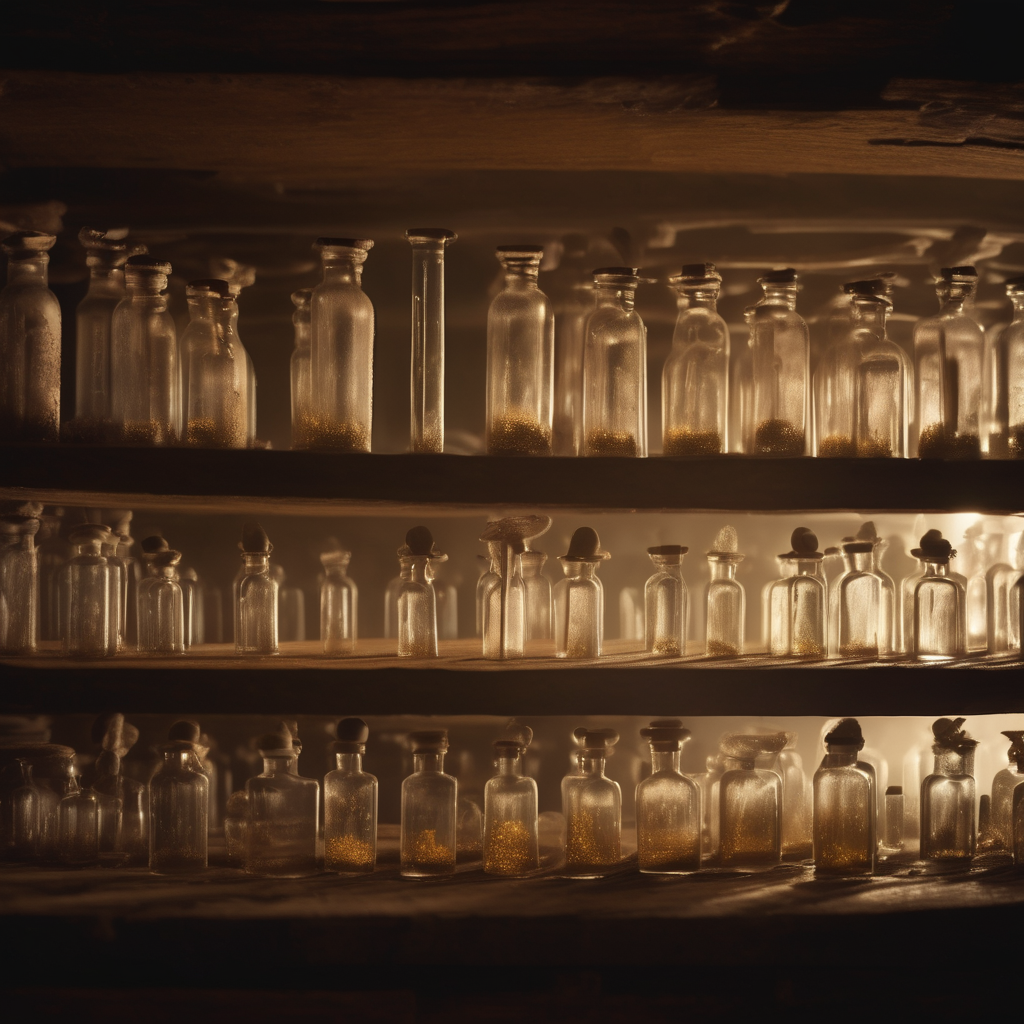Margot first noticed the glass vials in her grandmother’s attic on a Tuesday that smelled of cinnamon and regret. Each bottle no larger than her thumb, lined up in neat rows along dusty shelves like tiny soldiers awaiting orders. Inside each one, a whisper of mist swirled—some silver, others gold, a few the deep purple of bruised plums.
The handwritten labels made her stomach clench. “Thomas Chen, age 47, died peacefully.” “Maria Santos, age 23, accident on Highway 9.” “Baby Ellis, stillborn, parents unknown.”
Her grandmother emerged from the shadows, moving with the fluid grace that had always seemed impossible for someone past ninety.
“You weren’t supposed to find those yet,” Abuela said, her accent thick as molasses despite fifty years in Oregon.
“What are they?”
“The work of generations, mija. What our family has always done.”
Margot lifted one vial—”Eleanor Vance, age 89, surrounded by loved ones”—and felt warmth pulse through the glass. The mist inside swirled faster, as if recognizing her touch.
“We are collectors,” Abuela continued. “When someone draws their final breath, we preserve what matters most. Not the air itself, but the essence of their last moment. Their peace, their love, their forgiveness, their joy.”
“That’s impossible.”
“Is it? You’ve felt different your whole life, haven’t you? Known things you shouldn’t know? Sensed when people were hurting, even from miles away?”
Margot had. Last month, she’d woken from a dead sleep knowing her college roommate needed her, had driven three hours to find Sarah crying on her bathroom floor after a miscarriage she’d told no one about.
“The gift skips generations sometimes,” Abuela said. “Your mother never had it, but you… you’re practically vibrating with it.”
That afternoon, Abuela taught her the ritual. How to arrive at the moment between heartbeats, how to cup her hands around the invisible and make it solid. How to whisper the old words in Spanish that meant “your love remains” and “nothing good is ever lost.”
“But why?” Margot asked.
Abuela smiled, lifting a vial labeled “Marcus Thompson, age 8, cancer.” The mist inside glowed like liquid starlight. “Because someday, when the world grows too dark, when hope becomes endangered, we’ll uncork these bottles and release what we’ve saved. All the love, all the peace, all the moments of grace—they’ll find their way to people who need them most.”
Three months later, Margot sat beside a hospital bed in Portland, watching Mrs. Liu’s chest rise and fall in increasingly shallow breaths. The old woman’s granddaughter held her hand, whispering in Mandarin.
When the moment came, Margot cupped her hands and felt the familiar warmth flow into her palms—not grief, but profound gratitude. Mrs. Liu’s last breath tasted of jasmine tea and Sunday dinners, of lullabies sung to children who had children of their own.
Later, in her apartment, Margot sealed the essence in a small glass vial and wrote the label in careful cursive: “Helen Liu, age 82, grateful for everything.”
She placed it on her shelf next to forty-seven others, a collection of humanity’s most precious moments. Through her window, the city sprawled below, full of people struggling and loving and hoping and dreaming.
Someday, she knew, the world would need what she was saving. And when that day came, she would be ready to give it all back.

Leave a Reply